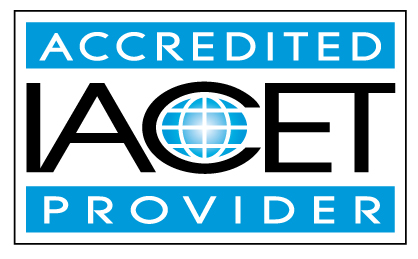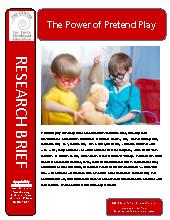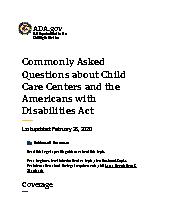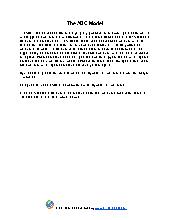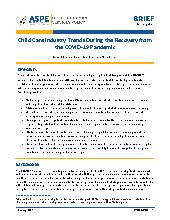18-Hour Train the Trainer
The 18-Hour Train the Trainer course, approved by MSDE, prepares child care professionals to effectively train and mentor adult learners. This training is essential for MSDE-approved trainers and focuses on developing skills in communication, adult learning principles, SMART goal-setting, and diversity, equity, and inclusion (DEI) practices.
Trainers play a crucial role in enhancing the skills and knowledge of child care professionals, fostering high-quality education and care for children. This course equips trainers with strategies to engage diverse learners, create professional materials, and lead impactful training sessions.
Key Benefits
- Gain confidence and expertise in delivering engaging, effective trainings.
- Learn to design impactful materials aligned with best practices.
- Build essential skills like active listening, conflict resolution, and advocacy.
Completion Requirements
To complete the course, participants must submit a Core of Knowledge training outline, deliver a 15-minute video presentation, and provide supporting materials like slides and handouts. Evaluations are based on clarity, organization, and adherence to adult learning principles.
This course ensures trainers meet MSDE standards while fostering excellence in professional development for child care providers.
By the end of this training, the learner will be able to:
- Give examples of ways to apply and model ethical behavior and professional integrity with community members and organizations.
- Demonstrate an understanding of the different learning styles of adult learners.
- Identify the components of active listening skills.
- Explain the value of self-evaluation and reflection.
- Define SMART goals and describe its historical context.
- Demonstrate understanding of how to write effect SMART Goals.
- Recognize the importance of maintaining confidentiality and privacy in communication with staff.
- Describe ways child care professionals can support advocacy issues.
- Identify the importance of problem-solving and conflict-resolution strategies with colleagues and administrators.
- Identify the responsibilities of trainers.
- Identify steps in creating realistic training goals and objectives.
- Demonstrate an understanding of the importance of professional etiquette while training.
- Identify the necessary components of a successful training.
- Identify strategies for training individuals with challenging personalities.
- Identify the necessary skills of successful trainers.
- List MSDE basic requirements for trainers
- Give examples of approved types of continuing education for trainers.
- Demonstrate an understanding of the different principles behind adult learning.
- Define what it means to be a trainer.
- Identify trainer prerequisites.
- List strategies for trainers on how to apply DEI practices.
- List the elements of a training proposal.
- Identify ways to meet the needs of diverse learners during training sessions.
- Identify ways to determine training effectiveness.
- Demonstrate an understanding of how to develop assessments using Blooms Taxonomy.
- Identify presentation strategies and training techniques.
- Identify the components of a successful trainer presentation.
- Demonstrate an understanding of media trends in child care.
- Identify ways to reflect on one's own personal perspectives with courage and/or humility
- Identify ways to interact respectfully and appropriately in a variety of cultural contexts
- Give examples of ways to collaborate with other professionals involved in the care and education of all children and youth.
- Identify strategies to make connections and interact substantively with those who are different from oneself
- Identify strategies to listen while withholding judgement about the new or unfamiliar
- Explain the importance of two-way communication.
- List strategies to collaborate with specialists to administer developmental screenings.
- Demonstrate an understanding of how to be open to new perspectives and diverse others.
- List strategies to implement SMART goals.
- Demonstrate an understanding of diverse perspectives, and navigate the ambiguity and complexity that comes with that.
- Describe the importance of responding sensitively to differences in individual communication styles.
- Demonstrate communication skills that enable intercultural communication, including effective listening skills
- Demonstrate an understanding of the importance and components of a mission statement.
- Identify communication issues that are common in the early care and education environment
- Criteria to earn CEUs:
- Certificates are awarded when the following criteria have been met by the learner:
- Class has been paid in full
- All material has been reviewed
- All review questions and final test have been completed with a passing score of 80% or higher.
- Learning Assessment Method:
- Learners will be assessed through questions after every section is completed. Learners will not be
allowed to proceed to the next section of the training until all questions have been answered correctly.
Learners will be presented with a final test composed of true/false and multiple choice questions.
Upon successful completion of the training, learners will receive their certificate by email.
- Learning Methodology:
- Online material will be presented in the form of slides,
accompanied with speech. Videos will be used to demonstrate ideas and concepts. Charts and tables
will be used for illustration.
- Logistics/Required Technology:
- A stable internet connection is required for the completion of this course. Users are highly encouraged to take their online course on Google Chrome on either a laptop or desktop computer. Speakers and/or headphones are also required to hear speech.
- Payment Policy:
- Payments need to be made in full. No refunds will be issued after starting the class.
- Proprietary or conflict of interest disclosure:
- Unless otherwise stated in the course description none of H & H subject matter experts and editor has any conflict or proprietary interests related to the material they prepared in this course.
- Support Services:
- Please visit our contact us page
You are purchasing a session of an online training that includes online assessments. Your certificate will be emailed to you once you pass the final exam with a passing grade of 80%.
Your certificate will bear the name you provided to us when you signed up. For support and questions regarding the material presented in this class please contact us at info@childcareed.com. Please consult our frequently asked questions page for other questions or feel free to contact us.
An outline of a Core of Knowledge (CKO) training topic including an overview, objectives, and summary statement with two key points. (see attached template)
A 15-minute training presentation.
Hours breakdown
18 PROTopics / Categories
Group AdminAdministrators
Trainers
Professionalism
Not Applicable
Basic
Administration and Management
Latest Jobs
- Medication Administration Training for Child Care Providers
- Frequently Asked Questions
- UNITED STATES OF AMERICA - District of Columbia
- UNITED STATES OF AMERICA - Tennessee
- Cross-Cultural Toilet Training Practices
- Texas instructor-led requirement
- Group Admin Subscriptions
- Maintaining your Family Child Care 18 hour Training Requirements in MD
- 18 Hour Train the Trainer Course
- Pediatric and Adult First Aid and CPR Certification
- Preparing for your First Aid & CPR Training
- How to Start a Daycare with the Right Qualifications
- Maryland Child Care Training Voucher Program: Empowering Child Care Professionals
- How Old Do You Have to Be to Work at a Daycare?
- 🎈 Ready for Sunshine & Smiles? Discover Florida’s Favorite Training Bundles for Early Educators!
- 🎢 Ready to Train with a Nevada Twist? Your Guide to Must-Have Training Bundles for Early Educators!
- Save Big and Simplify Staff Training with ChildCareEd’s Admin Portal
- Creating Inclusive Events that Celebrate All Families and Cultures
- 🍑 What Training Does DECAL Require Each Year for Georgia Childcare Staff?
- 🍼📋 What Do You Need to Work in Childcare in Texas?

